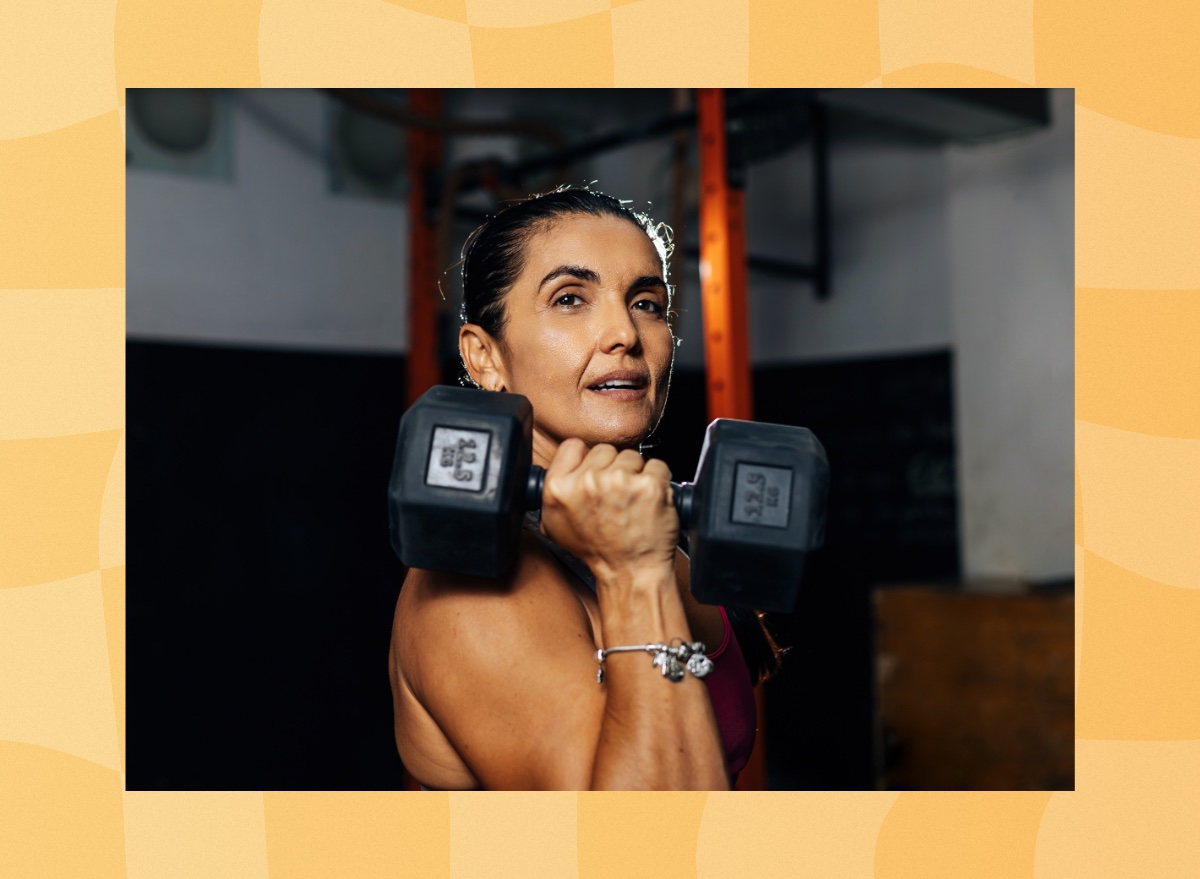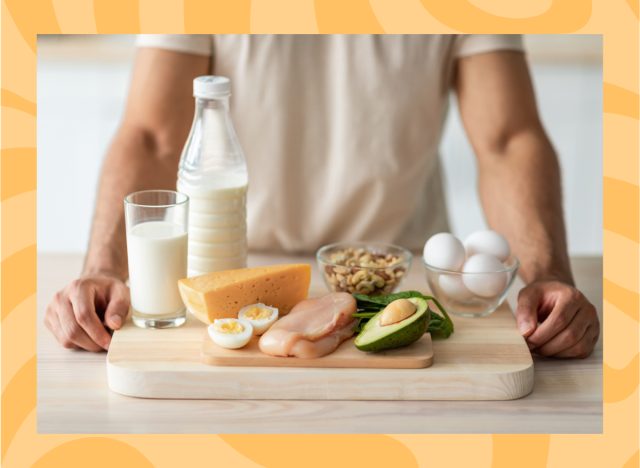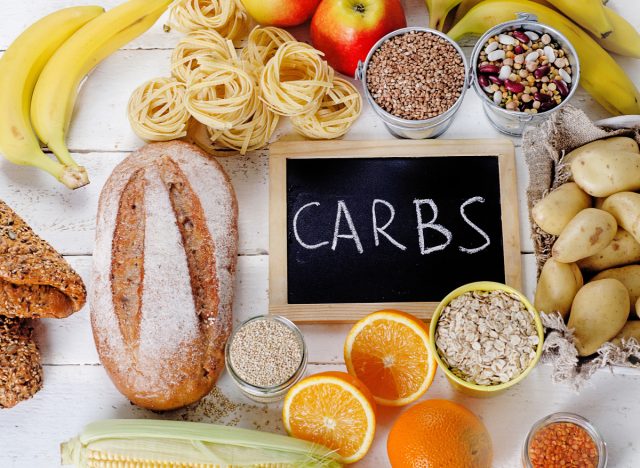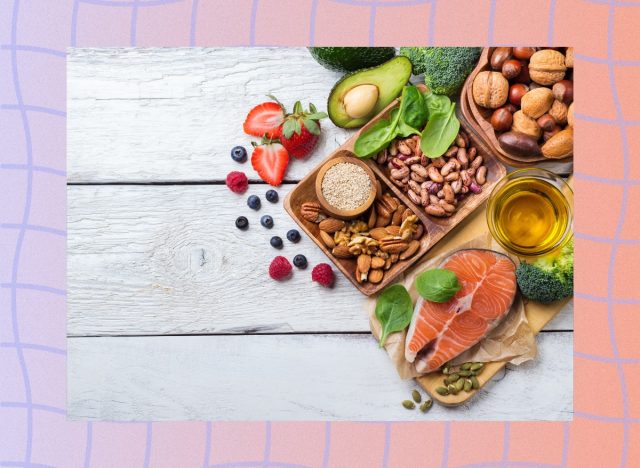The Most Crucial Eating Habits for Stronger Muscles, According to a Dietitian

From competitive weightlifters and other professional athletes to those who simply enjoy hitting the dumbbells at the gym, cultivating stronger muscles and increasing muscle mass is a health goal many can relate to. No matter where you might start on your own muscle-building journey, it's important to stick to your routine, which means remaining committed to not only your workouts but also the quality of your diet. What you eat plays just as much of a significant role as how you train, and striking the right balance is what will help you achieve your goal.
But when deciding on what to include in your daily meal plans, how do you know what eating habits will best position you to make the greatest strides in your pursuit of stronger muscles? Jen Bruning, MS, RDN, LDN, and spokesperson for The Academy of Nutrition and Dietetics, believes that the most crucial eating habit for building stronger muscles is to consume a balance of nutrients.
"A combination of foods containing lean protein, complex carbs, and healthy fats should do a similarly good job of supporting and maintaining muscle mass," Bruning says. "Give your body carbs to work your muscles more rigorously, protein to build them, and healthy fats to support body movements and recovery."
Stronger muscles through the power of protein

"Proteins are one of the most important nutrients for muscle building, as muscles are built from the same amino acids that we get from eating protein-rich foods," says Bruning. "When we eat foods containing protein, we digest the protein into amino acids."
Amino acids are what Cleveland Clinic calls "the building blocks of protein." According to Bruning, our body absorbs amino acids and then puts them to work for your body in a variety of ways, including building and maintaining muscles. She also notes that protein even helps your body recover post-workout when eaten within two hours of your exercise session.
"Day by day, using our muscles and eating plenty of protein-rich foods can build muscle," Bruning says.
If muscle gains are your aim, certain high-protein foods may help with muscle synthesis and cultivating mass. If muscle gains are your aim, some high-protein foods that may help with muscle synthesis. But this doesn't mean you can go ahead and eat bacon all day, every day, under the assumption that it's providing you with the quality protein intake you need to increase your strength and maintain a healthy lifestyle.
"Animal and plant-based high protein foods can both facilitate the building of lean muscle," Bruning advises. "There may be a slight benefit to using animal sources, but plant-based sources will also help muscles to build. Lean animal-based protein has the most protein per [ounce] of food, generally."
She also notes that it's important that you eat lean proteins low in saturated fat when trying to build up your muscle strength. Examples of quality lean proteins include fish, poultry, and plant-based proteins like tofu and tempeh. You can also have some lean cuts of pork and beef, as well—but always, of course, in moderation.
Lean proteins may seem like the star of the show when it comes to building muscle and strength training. , But a common misconception is that this nutrient is all you need to eat to gain muscle mass and increase strength. To support the whole body while building muscle, Bruning claims that balanced diets need just enough protein rather than excessive amounts of this nutrient.
"It's important to keep in mind that while protein is essential to build muscle, other nutrients are important for supporting the body, as it does the work that helps build muscle," Bruning explains.
Depending on protein alone could potentially set you up for a dead end, but a well-balanced diet can provide your body with all the nutrients it needs to function effectively. So when trying to build muscle, don't forget to also include carbs and healthy fats.
How the right carbohydrates can help you develop stronger muscles

As much as we may spite carbs with the mentality that they are all bad for you, it's essential to eat them for proper muscle development and add them to a balanced diet.
"While protein should be consumed as part of a balanced diet, allow nutrients like carbohydrates to help provide fuel during a workout," Bruning says.
Carbs are among the quickest sources of fuel for strength development and weight training. According to the Mayo Clinic, "During a workout, carbohydrates fuel your brain and muscles. […] If you are in good shape and want to fuel a daily, light-intensity workout, eat about 3 to 5 grams of carbohydrates for every kilogram of body weight."
But before you start eating ziti by the box full for your workouts, make sure you're consuming the right kind of carbs. Bruning suggests that whole grains are ideal for increasing muscle strength.
"Whole grains contain some protein as well as B vitamins and iron," she says. "B vitamins help build muscle, and iron carries oxygen in the bloodstream to the muscle, so having enough iron helps muscles work more efficiently."
Whole grains can even emphasize protein in the body. In a study published in Current Developments in Nutrition, researchers found that consuming 50 grams of whole grains per day helped to promote higher protein turnover and enhance net protein balance in adults. Some nutritious whole grain carbs include whole wheat bread, brown rice, oatmeal, millet, and barley.
The role of healthy fats and antioxidants in increasing muscle strength

Antioxidants are substances that can help shield your cells against free radicals. Too many free radicals can be difficult for your body to regulate, which can have several side effects, including altering proteins.
Similar to the negative stigma around carbs, fats as a whole are often snubbed and looked down upon when it comes to improving your health. In actuality, not all fats are bad for your body. Although "healthy fat" may seem like an oxymoron, they are a good resource for muscle strength. Some evidence even suggests that consuming omega-fatty acids could potentially amplify skeletal muscle anabolism—which is when the body naturally builds and repairs muscle tissue—depending on factors like how much protein you eat per day.
"Healthy fats and antioxidants can assist with recovery," Bruning says."Omega-3s are a type of healthy fat that may play a role in muscle cell efficiency and muscle recovery," Bruning says.
For some good sources of antioxidants, Bruning suggests consuming plant foods such as colorful fruits and veggies, whole grains, seeds, nuts, and even coffee. And for healthy fats, try salmon or other fatty fish, flax seeds, chia seeds, and walnuts.









